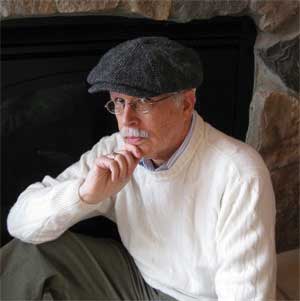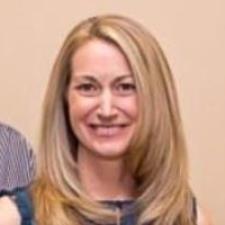 Post Classifieds
Post Classifieds
Marrying murder with tourism
An Interview with Mark Okrant
The Cog Railway, the Kancamagus Highway, the Flume Gorge at Franconia Notch – these are just a few sites scattered about the state which radiate the spirit of New Hampshire. Their charm is pure and pastoral, simple and natural, like so much of the natural landscape we are surrounded by here. Perhaps their names echo in a past memory of yours, a childhood trip up to the tip of Mount Washington, or a scenic drive over the infinite and omniscient crest of the Kanc.
Hopefully you've had your fair share of the natural and breathtaking sustenance that the many tourist sites in New Hampshire have to offer us. They're what draw us to the state and what keep us here. They're always what remind us of what we love about this place – that there are still a few sanctuaries left in this chaotic, industry-centered world of ours.
Thus is the focus of Professor Mark Okrant here at PSU, professor of tourism management and policy, and also the director of the Institute for New Hampshire Studies. Professor Okrant has been teaching at the university for over three decades as the principle professor in the tourism program. Under his guidance, students can learn skills to prepare them for what he calls "the next generation" of tourism management and administration in the state and in New England.
Tourism studies, like just about everything these days, has developed into a very broad field. It is a multi-disciplinary subject now which requires a basic understanding in the fields of social science, business, communications, and foreign languages. "The tourism industry is also about developing verbal and written communication skills and problem solving," said Professor Okrant.
In a given tourism class, for example, Professor Okrant will challenge students with a problem facing a community, generally from a ‘tourist' location, regarding the natural landscape or an attraction of the particular place, and bettering the lives of the residents that live in congruence with it. This can involve anything from constructing a business plan to thinking in innovative terms to make an old attraction evolve to help modern day needs.
For example, Professor Okrant was asked years ago to travel to the end of the Aleutians in Alaska, which was home to an old naval base. His objective was to figure out a way to help the Aleut people earn a living by utilizing the old base's existing facilities. He found that the most economic ways to use the base were to make use of the old runway, the docks, and the multi-million dollar film studio and equipment that had been left behind. Afterwards, he brought this same problem to his class. "It's a really good feeling when your students can come up with better solutions than you can," he said.
As the director at the Institute for New Hampshire Studies, Professor Okrant has had his hands on quite a few local projects that greatly affect the familiar attractions that we know and love. He and the Institute work with the Center for Rural Partnerships to "increase knowledge about New Hampshire and its relationship to the New England Region" (http://www.plymouth.edu/inhs/index.html). Professor Okrant invites students to assist him in learning more about the tourist activities and to brainstorm with him ways in which the industry could be improved. This involves compiling surveys to working with local clients, to focusing on much larger attractions.
Professor Okrant was asked, for example, to study the famous Cog Railway system that traverses up the side of Mount Washington, a long-time favorite attraction of many locals and tourists alike. Okrant's goal was to determine whether or not the railway system should continue to run off of the coal engines that it has for decades, or to switch to a more environmentally friendly method. The coal engines are slow, giving passengers all the time in the world to take in the breathtaking ascent. The greener engines would carry passengers to the summit swiftly, giving them more time at the top of Mount Washington before the trip back down. But the coal engines are traditional, which holds quite a bit of importance when it comes to making such decisions.
But perhaps the singular most interesting fact about Professor Okrant is the number of people he's killed. Figuratively speaking, of course."I suppose I ought to tell you," he added towards the end of our interview, "I also write murder mysteries." His series of Kary Turnell murder mysteries are conveniently set in and around some of the most notable landmarks in the state, including The Balsams Grand Resort and Hotel, the stately manor and resort nestled alongside Dixville Notch. Professor Okrant currently has five books published, hopefully with more to come.
Get Top Stories Delivered Weekly
More theclockonline News Articles
- Campton Elementary School 8th Grade Silent Auction & Spaghetti Dinner
- Student Spotlight: Sabrina Siegel
- Ghost Hunt With PSU Paranormal Research Club
- Steve Irwin: How He Brought Us Together
Recent theclockonline News Articles
Discuss This Article
MOST POPULAR THECLOCKONLINE

Campton Elementary School 8th Grade Silent Auction & Spaghetti Dinner By Rebecca Tgibedes

Will You? By Isabelle Elsasser

Summer in the Sunflowers By Emily Holleran

Student Spotlight: Sabrina Siegel By Justine Walsh
GET TOP STORIES DELIVERED WEEKLY
FOLLOW OUR NEWSPAPER
LATEST THECLOCKONLINE NEWS
RECENT THECLOCKONLINE CLASSIFIEDS
OUTSIDE THE LINES
- A Story To Sing About
- The Gap in Gum Care: Why Caring For Your Teeth’s F...
- Top Tips for Signature Scents and Better-Smelling Laundry
- A Dog Trainer’s Top Tips to Support Pets Through Life S...
- Clear the Air of Indoor Pollutants This Spring
- Stroke & Dementia in Black Men: Tips for Staying Healthy...
- Hispanics and African Americans at Higher Risk for Eye...
- African Americans at Higher Risk for Eye Disease
- Infinity Kings: Final Book In A Favorite Fantasy Series
- What You Need To Know About Keratoconus and the iLink...
FROM AROUND THE WEB
- Don’t Let Diabetes Shortchange Your Golden Years
- No Child is Forgotten By Marine Toys for Tots
- Sweeten Your Springtime Salads With Healthy Chilean Grapes
- Young Author Translates 4,000-Year-Old Text to Reveal...
- Keeping Cool and Energy-efficient Amid America’s “...
- Addressing Sarcopenia with a Healthy Diet
- Subway’s New Wraps Elevate Eating on the Go
- Family Teacher Conference Topics Beyond Academics
- Youth Take Down Tobacco
- BookTrib’s Bites: Four Reads to Kickoff Spring
COLLEGE PRESS RELEASES
- Shoff Promotions Comic Book & Sports Card Show
- Semiconductor Research Corp unveils 2024 Research Call, $13.8M Funding
- Charles River Associates Opens Second Scholarship Cycle, Expands to the UK
- BLUMHOUSE AND AMC THEATRES LAUNCH FIRST-EVER HALFWAY TO HALLOWEEN FILM FESTIVAL
- THE GEN Z IMPERATIVE: LISTEN TO FEELINGS AND GIVE GEN Z A VOICE












